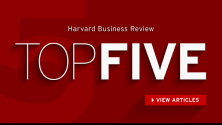As we settle into 2020, here’s a staggering workforce stat for you: It’s estimated that this year, Millennials will represent more than one-third of the global workforce. With Millennials (born 1982-1996) overshadowing GenXers as the largest generation in the labor force, you might think that every organization would have a strategy in place to harness the capabilities of this growing workforce.
But that doesn’t appear to be the case. Instead, we’re still regularly reading about how Millennials are being pitted against Baby Boomers and GenXers. We Millennials still hear the stereotypes about how we’re entitled and must receive a pat on the back for every minor task we complete.
Yes, in many ways, Millennials are profoundly different, as detailed by Gallup in its recent research, How Millennials Want to Live and Work. But we’re not children anymore. Today’s Millennials range in age from 23 to 38 years old: That’s right, some of us are almost "over the hill."
In the years ahead, we will continue to disrupt everything about the world we live in: This represents a great opportunity for organizations willing to cast aside the stereotypes of our generation, and instead harness the drive, loyalty, and innovation that Millennials bring to the table.
CIOs and IT leaders in particular need to recognize the role technology now plays in partnering with the business to enable the success of the organization. One of the key ways to meet those demands is by tapping into your Millennial talent, and giving us an opportunity to be a part of the decision process.
Understand where Millennials are coming from
As (what feels like) one of the few IT executives who is also a Millennial, I can tell you that contrary to the stereotypes about our generation, we do not ruin everything, nor do we think we are always right. We have a knack for coming up with creative ways to approach problems and thinking outside of the box. We question the status quo with why and why not. We challenge the folks around us to be more accountable, to mean and do what they say in a timely manner. Sometimes we’re thought of as impatient, but we value time lost.
More than anything else, we want to have that feeling that we belong and are valued – that we are not just there to fill a checkbox or to say we are in the room. We want to be active, listened to, and heard. We want to be part of a revolution that helps organizations change their mindset from "We’ve always done it this way."
3 questions to help guide your efforts
How can your IT organization do a better job welcoming this generation and setting them – and by extension, your transformation efforts – up for future success?
Here are three questions that can help you be more deliberate in your efforts to tap the power of your Millennial talent.
1. What programs are in place to develop Millennial leaders to take on greater roles within the organization?
Most organizations already have Millennials working within the company. This is an opportunity to give them bigger roles, with mentorship and a safety net to learn. While Millennials have great ideas and a vision of what the future should look like, their methods may need tweaking and guidance will help.
Hopefully you’ve already begun to do this, if not, it’s time to shift your thinking on this. Many Millennials are ready to take on bigger roles, if given the opportunity. Consider roles where they can be a part of strategic decision making and help the business to cater to their Millennial colleagues. It's a positive side effect: They will help you redefine how to optimize your workplace to better accommodate and help make this generation more productive in the workplace.
2. How far along are you on your journey to redefine your culture, and what’s most important to the organization?
This is more than just about the technology. Let’s be honest, there are a lot of talks about what used to be the norm, or the famous “we’ve always done it this way,” on issues that need to change. The issues range from silly policies around work hours and location, to dress codes, processes, and yes, even, applications. Millennials grew up learning how to be concise and getting whatever is needed that allows them to be most successful. Organizations need to learn how to harness that instinct and provide the right tools.
3. What does success look like?
The first two questions can obviously be broken down to address basic shortcomings. Regardless of how you are examining the current state, as you think about your strategy around Millennials, it's most important to understand what success will look like. It needs to be something you aspire to and something that can be measured. This would be a good time to gather thoughts from the Millennials you already have within your organization.
Some quick metrics can easily help you gauge how you are doing. One is the number of Millennials you have within your organization and the percentage of them in a leadership position (and who feel their voice is being heard.) Second, what percentage of your workforce would say your organization is Millennial-friendly and would recommend their Millennial colleagues come work for your organization? Make a deliberate effort to move the needle on elevating the role of Millennials in your IT organization. The key here is to not lose sight of what's most important.
Recognize Millennial value
One company that has recognized the value Millennials have on their business as customers is Nationwide. So much so that they planned a roll out for a completely separate branded company on a digital platform, catering strictly to Millennials. It goes to show the power this generation is having on the future of business. By no means am I saying every company needs to go and create a new brand for Millennials, but what I am saying is that the old ways of doing things and the old tactics often will not work for Millennials.
Millennials believe all actions matter, big and small, and are eager to work if given the chance. They are looking for opportunities to make an impact and disrupt the status quo. If you're ignoring this group, you could be thwarting the future of your organization.
[ Want advice from top CIOs on solving talent challenges? Get the Harvard Business Review Analytic Services report: IT talent strategy: New tactics for a new era. ]






